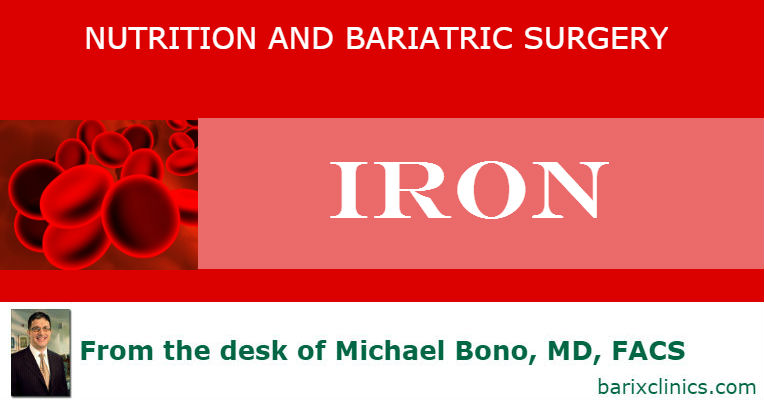Iron Deficiency
Iron is an essential mineral found in every cell in the body, and indispensable to human life. Its primary function is the production of hemoglobin, the part of red blood cells that are the oxygen carrying protein. Over 2/3 of the body’s iron stores are located in hemoglobin. Iron also is a component of myoglobin, the oxygen carrying protein in muscle. Iron is also involved in a multitude of body functions, including:
- Hemoglobin and myoglobin production
- Involved in the conversion of sugar into energy
- Production of enzymes
- Immune system function
- Development of cognitive function in children
Dietary sources with the best sources include lean red meat, dark meat poultry, oysters, salmon, tuna, liver, eggs, dried beans, dries fruits, and iron fortified cereals.
Lesser, but still important sources include:
- Vegetables (broccoli, spinach, kale, collards, asparagus, dandelion greens)
- Whole grains (wheat, millet, oats)
- Dried fruits (prunes, raisins, apricots),
- Legumes (lima beans, soybeans, peas, kidney beans)
- Seeds (almonds and brazil nuts)
Improved iron absorption occurs with foods rich in vitamin C, such as citrus, strawberries, tomatoes, and potatoes. Mixing a lean meat, fish or poultry with beans or green leafy vegetables at your meal can improve iron absorption up to 3 times. Cooking with a cast-iron skillet also increases the amount of iron in food. Some foods, though, reduce iron absorption such as black or pekoe teas, which contain substances that bind to iron to prevent your utilization by your body, and also taking iron supplementation at the same time as a calcium supplement (calcium affects iron absorption, and should be taken separate times).
Discussed in the prior article, the morbid obese patient presents with a number of pre-existing nutritional deficiencies, and iron deficiency is included. This presents as anemia (decreased circulating red blood cell volume) of chronic disease. Post-operatively, iron deficiency is seen in 20 – 50% of patients. Contrary to popular belief, all bariatric procedures, to varying degrees, can lead to iron deficiency, due to multiple reasons:
- Reduction of meat intake (lower tolerance to red meats)
- Decreased stomach acid production and volume (multiple iron absorption effects)
- Decreased overall absorptive area (smaller stomach, bypassing duodenum and jejunum)
- Concomitant pre-operative anemia of chronic disease
One also needs to consider other variables could compound the anemia effects, such as:
- Other causes of iron deficiency, including blood loss (menstruation, GI loss), increased demand due to rapid growth, pregnancy, and vegan diets.
- Other causes of anemia:
- Chronic disease
- Kidney disease
- Pregnancy
- Poor nutrition
- Obesity
- Alcoholism
- Sickle cell anemia
- Thallesemia
- Aplastic anemia
- Hemolytic anemia
Symptoms of iron deficiency are associated anemia findings, include lack of energy, shortness of breath, headache, irritability, dizziness, and/or weight loss. Physical signs include pale appearance, including the tongue, elevated heart rate, and spoon shaped, brittle nails. Iron deficiency during pregnancy is associated with a number of adverse outcomes for both mother and infant, including increased risk of infection, low birth weight, reduced learning ability, and death.
Lifelong monitoring from your physician and dietitian are paramount after bariatric surgery, for a safe path towards a healthy life.
From the desk of Dr. Michael Bono


